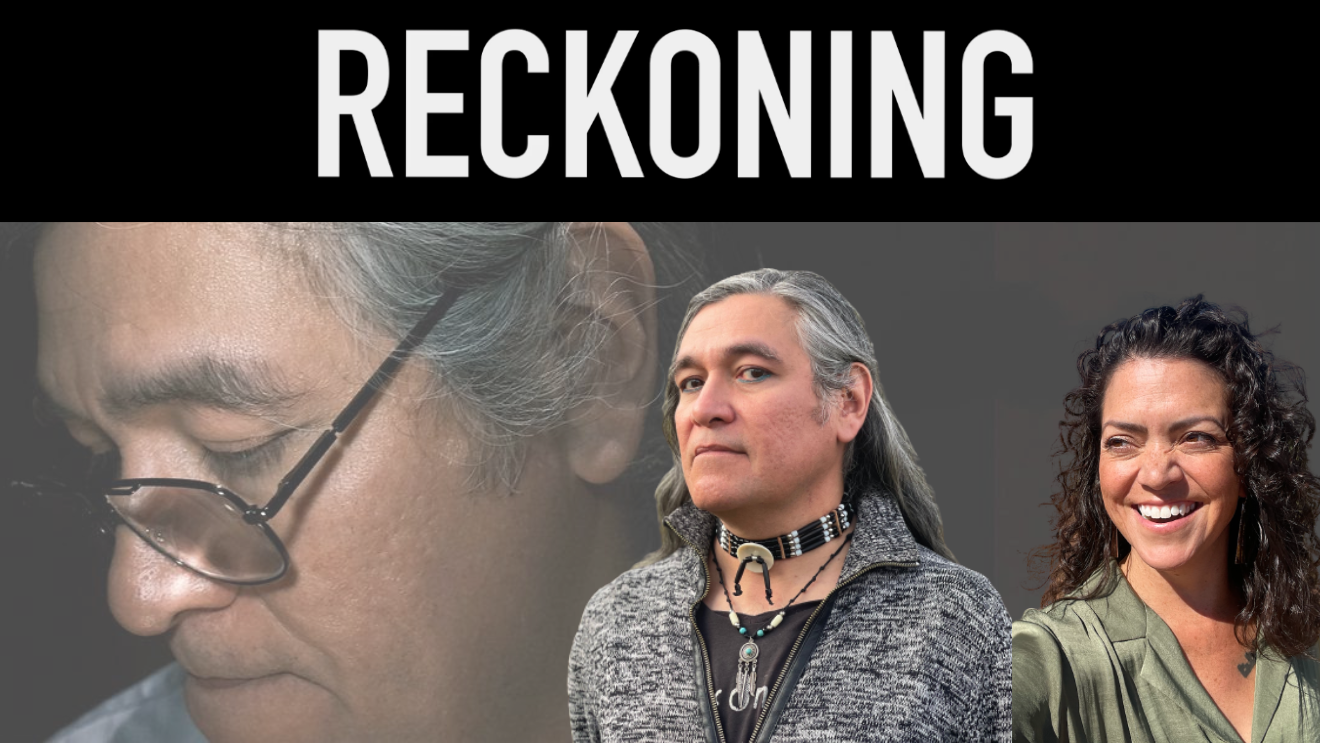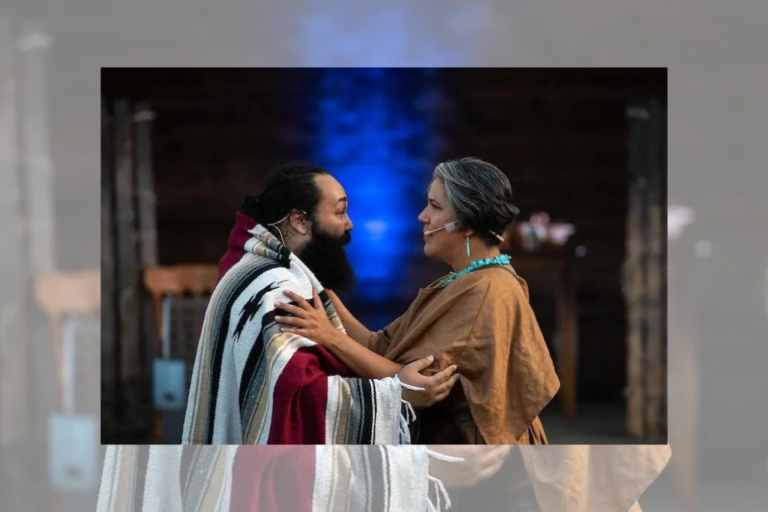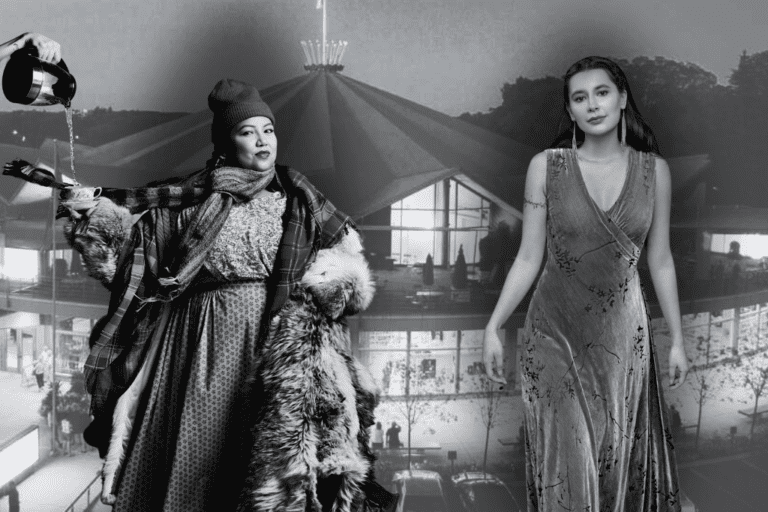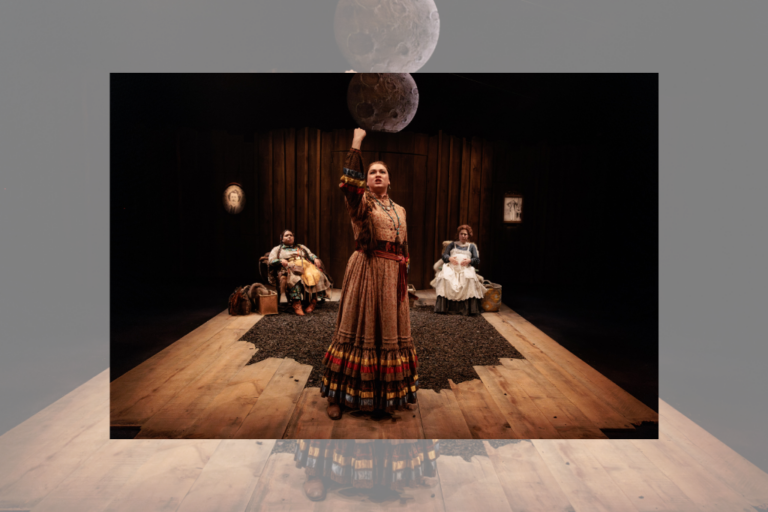Reckoning is a Confrontation: In Conversation with Prairie Theatre Exchange’s Jonathan Fisher and Tara Beagan
“The residential school tried to break him, maybe broke him. We don’t know. But he’s not going to go back there to be re-traumatized about this.”
Multi-talented theatre artist Jonathan Fisher joined me via Zoom to talk about Survivor, the solo piece that concludes the triptych of Reckoning, created by ARTICLE 11 and presented by Prairie Theatre Exchange from June 21–25. For Fisher, it’s the subtleties that are “the challenge in playing this character,” someone who has been through the residential school system, who perhaps has been broken but won’t show it. It was, however, a challenge Fisher was up to tackle from the beginning, when playwright Tara Beagan first reached out to him. Working with both Beagan and Andy Moro in the past, they had his trust and full support in bringing this work to life.
When I spoke with Beagan a few days prior to my conversation with Fisher, she explained the role of Survivor was written for him. “I had started writing it, but then once I knew it was him, it came much more quickly.”
“What is so brilliant about Tara’s writing is that the character doesn’t mention anything at all about what happened to him at school,” said Fisher. Beagan challenges us to look at the very human cost of such an inhumane institution without re-traumatizing characters and the actors who play them.
In both the stage and film versions of Survivor, Fisher delivers his testimony at a small desk. Limited by the confines of the proscenium, he speaks to a small camera on a tripod in front of the desk, which projects its tight shot of his face behind Fisher. Moving the production to film gave space to add a few more scenes, including some exterior shots and day-to-day moments that help to deepen the humanity of the survivor, and how the legacy of residential schools impacts every moment of his life, he said.
Fisher recalled the first workshop back in Toronto: “The script already was great. It was the way it was written, it was already broken down for me in beats. Andy Moro started pulling all the curtains, blacking everything out. All that was left was a tripod, a seat, and a small, little desk lamp over it. Once those curtains started to close, it was just like, ‘okay, here we go.’”
Moving from stage to film was exciting for Fisher, creating space for him to fine-tune his performance in ways that the stage does not permit. On the stage, everything has to be larger, but in film “you can get away with just a whisper. Even if you don’t have a line, all you have to do is just think about the thought, invest in it, feel it, and the emotion will just come off, and the camera will pick it up.” Fisher enjoyed the opportunity to add another layer of depth and nuance to his character.
I wondered if performing such a challenging role is hard on Fisher, who assured me that though he came dangerously close to going down the path of the method actor, he resisted. “It takes too much energy,” Fisher laughed.
The theatre, for Fisher, is a sacred space akin to being at church: “whether I’m onstage or in the audience, it’s a place I can always feel safe. And everything in terms of this character, whatever … comes up on stage, as an actor, an artist, you leave it there.”
Fisher was quick to point out that his role in Reckoning is extra special. He said it’s the first time a playwright has written a part specifically for him. When the play version premiered at The Theatre Centre in 2016, Fisher said he received many compliments from his peers on his performance. With a modest smile, Fisher credited his success to the power of Beagan’s artistry. “It’s all Tara’s writing. It was all there from the beginning.”
Fisher hopes that every Canadian takes the time to watch Reckoning. As for what people take from it, he said “that’s up to the audience.” Film can be watched and re-watched, but we, as people, are always changing and growing. “You can watch it now and ten to 20 years later, you’ll get something different from it. And that’s the power of stories!”
“Every work is a bid for empathy,” Beagan said. “[Reckoning] is a confrontation. It’s like, ‘fight me.’ That’s basically what we’re saying. Every collaborator who comes in understands, at least to some small degree, what the fallout from the TRC [Truth and Reconciliation Commission of Canada] was. For deniers out there, or for people who think it’s exaggerated, watch it. If nothing touches you, you’re dismissed. We’ve done our best.”
Reckoning runs digitally from June 21–25. Tickets are available here.















Comments